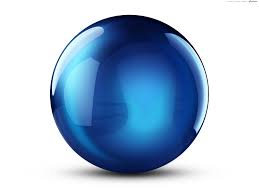Am I the only person slightly under whelmed by some of the new vinyl reissues? These new expensive 180-gram offerings should be far better than the old 1970/80s records they are replacing. Often they are not. Yes, they are made of thick (and usually flat) plastic and they have great covers usually protected by up to three layers of polythene. However, a visual inspection shows they are often poorly pressed. Instead of a clear, black vinyl they are patchy when held against the light. The surface noise is often very poor with lots of clicks and pops. The first hurdle is often simply getting them out of their sleeve, a nasty paper offering seemingly welded to the record. Why not include a plastic sleeve? On one record I have, one track actually appears to be running at a different speed to all the others (no, I do not know how either).
I am careful with record cleanliness. All records are cleaned on a Moth record cleaning machine with L’Art Du Son Record Cleaning Fluid. They are then treated with Last record preservative. Finally they are put in a new plastic sleeve. I am prepared to believe my system is slightly at fault, but old 1970s EMI recordings still sound great.
My current system comprises of: Michell GyroDec SE with HR power supply, Michell Tecno arm, Goldring G1042. Active Linn Keilidh loudspeakers, Linn Kolektor preamp, twin LK85 power amps with active cards. Silver discs are played on a Naim CD5i. Mostly Linn cables.
I am very happy with all I have bought so far and Quiex SVP vinyl is superb in my view. I only start to have reservations when mastering engineers decide they can ‘improve’ original mix downs just by applying EQ in a heavy handed fashion. I suspect, however, that most ‘touching up’ is done sensitively and is barely detectable. Then, heavy, flat vinyl I have bought to date is quite obviously quieter, smoother and certainly puncher than the thin, warpy stuff!
Having spent many hours listening to all varieties of LPs, original first pressing, reissues, audiophile reissues, imports and Japanese pressings, I'm of the view that a perfectly preserved first pressing released in the artist's country of origin is the best sounding, closely followed by the Japanese pressing of the same, followed by everything else, with audiophile reissues often constituting the best of the rest. Of course, it's very complex and doesn't always pan out like this, but it's a good rule of thumb.
Some years ago, Lyra's Jonathan Carr and I had a very long listening session in his Tokyo apartment and a mind-numbingly expensive system, with just about every variant of Steely Dan's 'Aja', Pink Floyd's 'Wish You Were Here' and Neil Young's 'Harvest' ever made, listening to up to six or seven variants of the same, and that's what we found. We then repeated the tests on a range of other titles and got very similar results; a pattern had emerged!
The closeness to the original release seems paramount, both physically and chronologically. So a British Beatles LP is better than an American or German version (which is more likely to be taken from 2nd generation masters), as is a 1st pressing (i.e. made at the time of release) rather than the umpteenth pressing, made some ten years later (from worn copy masters). The 'nice price' reissues are generally awful (and that goes for Jap LPs, which all went mid-price after a few years subsequent to the release date (if you seen 'Y1,600' written on the OBI, avoid).
The 'audiophile reissues' are variable; some good, some not so, but none as good as standard home-market first pressings. The 180g thing is in my view a sideshow; some of the best sounding vinyl I've ever heard is Japanese, pressed on 80g. It's not the thickness or weight of the disc, it's the quality of the master, the presses and the vinyl compound itself, that counts. Japanese LPs always sound superb, but are conspicuously different sounding all the same. They're recorded at a lower level, yet their vinyl formulation seems superior so they're quieter even so. They also sound silkier and more delicate to their western alternatives, although this borders on the euphonic if you're going to be a stickler for accuracy.
I really don't think audiophile reissues should be bought with the assumption that they're necessarily better than the original. In most cases, the original was superb (and I mean the original, not the third pressing); the trouble is though that it's nigh-on impossible to pick up a mint, unplayed original first pressing of anything now, so suddenly audiophile pressings begin to make sense. Even so, I am dismayed by the repro quality on many of the covers, which seem to have been scanned on a so-so digital scanner in someone's spare room.
Ultimately it's all about the quality of the individual product; I've had brilliant reissues (Marvin Gaye's 'What's Going On' on Motown) and tragic ones (Kate Bush's 'Kick Inside' on EMI). A good place to find out about the quality of reissues are of course the 'audiophile vinyl' pages of the paper magazines.







